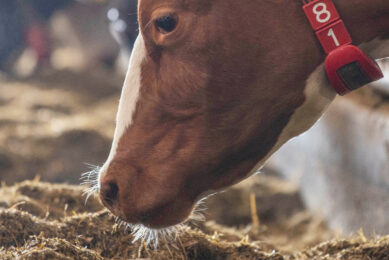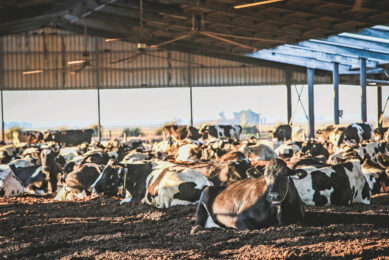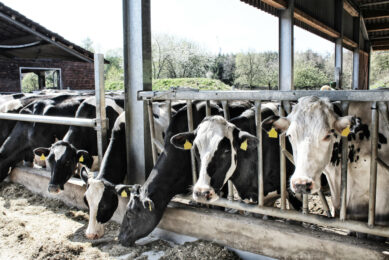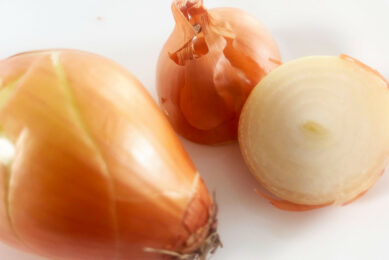Crossbred dairy herd in England wins coveted Gold Cup award
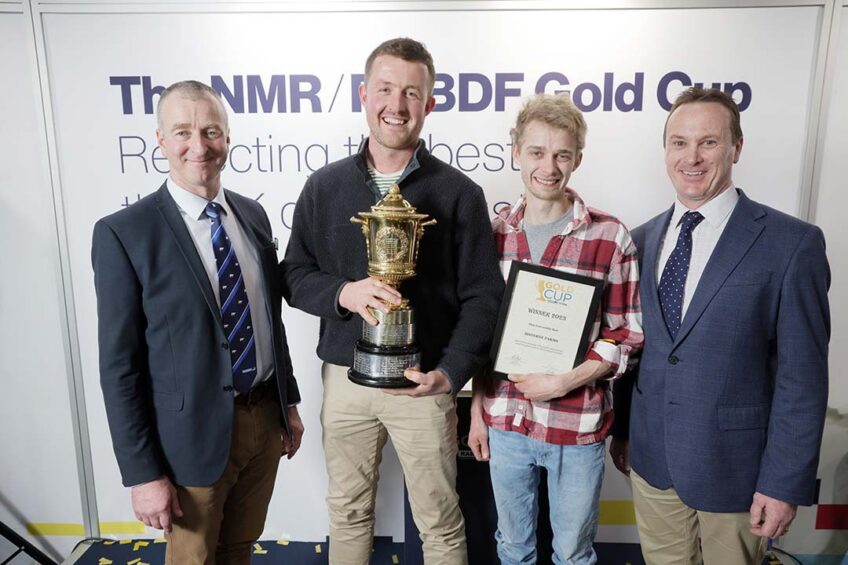
A dairy farm milking 600 crossbred cows in England has won the coveted National Milk Records (NMR) Royal Association of British Dairy Farmers (RABDF) Gold Cup award for 2023.
Judges were unanimous in naming Bisterne Farm in Ringwood, Hampshire, as the overall winner, highlighting the lengths the farm goes to showcase the dairy industry. Indeed, this is also one of the first times a farm using crossbred cows, in this case using New Zealand Friesian sires, with some Irish and Kiwi cross bulls, has taken the Gold Cup home.
The farm is part of the 1,500-hectare Bisterne Estate and is run in a collaborative approach between estate owner Halam Mills and contract farmer George Brown under a Contract Farming Agreement (CFA). In 2019, when Hallam was reviewing the direction of his dairy enterprise, it was decided that a CFA would best facilitate the business’ next chapter.
With George brought on board as his contract farming partner, they have reshaped their dairy enterprise, investing in infrastructure to make the dairy resilient for the next 20 years. Their aim has been to return a profit from dairy using a holistic approach whereby the cows and the environment work in harmony.
The contract partnership means the estate owner provides the land, buildings, houses, and fixed infrastructure for a first charge fee and George provides machinery, power and labour to the enterprise. Ownership of the herd at Bisterne Farm is shared by both parties, with a 10% return on capital paid on all capital the farm owner and contractor have employed in the business.
Dairy herd performance
The cows at Bisterne Farm produce an average 3,730 litres of milk from forage and have a target to reach 4,000 litres with cows yielding 550kg of milk solids per cow per lactation. Current average yield of the spring and autumn block calving herd is 6,282kg of milk at 5.06% butterfat and 3.84% protein.
Bulls are selected for breeding traits including moderate stature, strength, well attached udders, and good milk solids, targeting 4% protein and 5% fat, and good fertility. Around 75% of the dairy semen they purchase is sexed with British Blue and Aberdeen Angus straws used on lower production and Johne’s infected cows, with beef calves sold off the farm at 10 days old.
Grass-based farming
Cows graze across a 190 ha grazing platform from 4 February to 21 December, with an additional 319 ha used for silage and youngstock ground, which includes historic parkland and river meadows, of which 190 ha is managed primarily for conservation.
The herd was originally predominately spring calving and out-wintered on fodder beet. However, with the farm being on free-draining soils, they have struggled for grass in the summer and have resorted to feeding silage, so they have now transitioned 500 spring-calving cows to a 350/250 autumn/spring split.
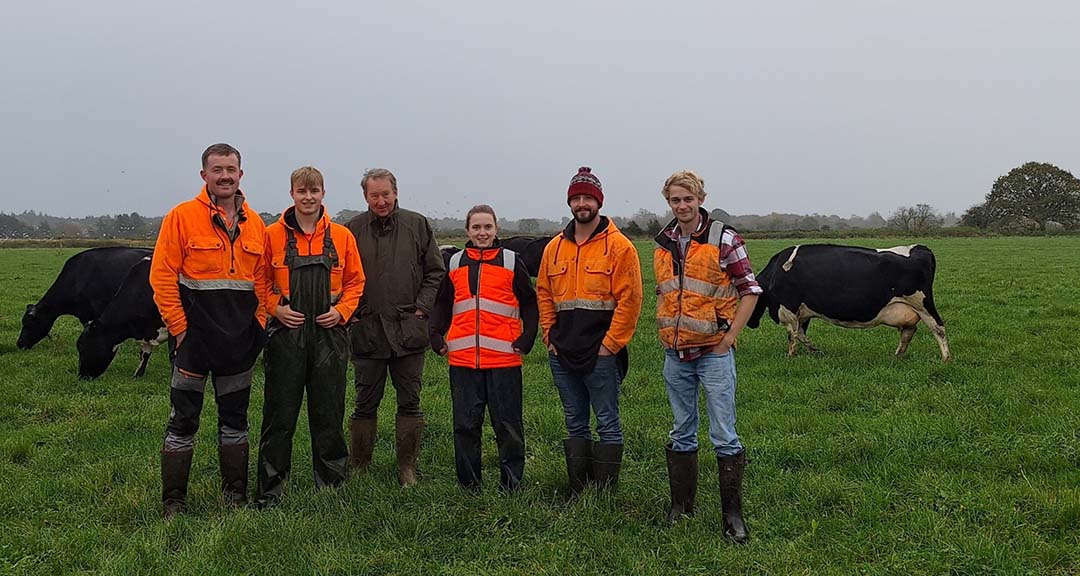
George said: “The plus side of transitioning this way was that it maintained our closed herd status. However, extending the calving interval on this number of animals reduced our efficiency during the transition. We don’t have the infrastructure to house the entire herd, which is why we are still split calving.”
Autumn calving cows are wintered in a 365-cow cubicle shed, feeding on a self-feed system utilising home-grown grass and maize silage. They recently moved to soya-free diets to enable them to reduce their carbon footprint further, which currently stands at 1.09 kg CO2 equivalent per kg FPCM, excluding sequestration. They have also reduced crude protein percentages in winter diets.
High herd health
Managing the cow’s health status is a vital part of the herd’s efficiency, with the farm focusing on prevention rather than cure. In the winter months, cows are milked out of cubicles and bedded 3 times a week using sawdust mixed with hydrated lime. Post-milking, the teats are sprayed with an iodine-based teat dip.
Cows showing signs of clinical mastitis are isolated into a smaller group where they are milked separately at the end of milking. The team at Bisterne Farm is hot on mastitis, with any mild cases treated with antibiotic tubes and an anti-inflammatory/pain relief injection.
An injectable antibiotic is used for more severe cases, and where appropriate, additional hydration is provided. Once clear of their withdrawal period, cows are tested using the California Milk Test before returning to the main herd. Their current case level is 22.6 for every 100 cows a year, and antibiotic usage is at just 7.13 mg/pcu.
George added: “Our young, ambitious team steers our dairy to profitability. We strive to be an example of a modern dairy business that can face the challenges we may see in the future. Our aim is to do the basics well.”
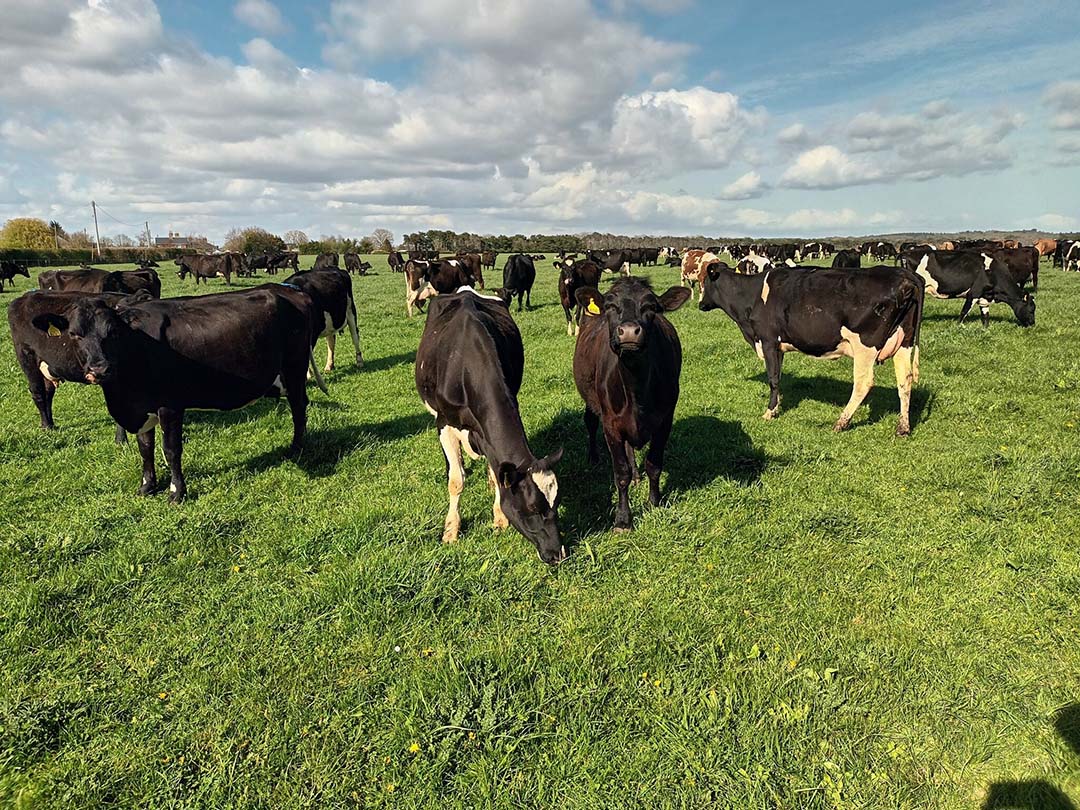
Judges comments
Judges were RABDF chairman Robert Craig and Trustee Di Wastenage, NMR‘s veterinary adviser Dr Karen Bond and 2020 Gold Cup winner Essex dairy farmer John Torrance.
Craig said: “George and his team are a great example of what modern pasture-based dairying should look like. All the judges unanimously decided on Bisterne Farm as the 2023 winner, not only because of their excellent attention to detail and focus on KPIs across their system, but also because they go above and beyond to showcase dairy to the consumer.
“They have a really positive attitude towards dairy farming and have an excellent social engagement, hosting over 4,000 visitors during last year’s Open Farm Sunday and opening the farm up to other groups such as Scouts, NFYFC [National Federation of Young Farmers’ Clubs] and ex-offenders.”
The judges also highly commended the other finalists who were: Graham Farms, Drumgoon Manor, Maguiresbridge, Northern Ireland; Michael Eavis, Pilton, Somerset and Joe Ives, W&P Ives, Herriard, Hampshire.
Join 13,000+ subscribers
Subscribe to our newsletter to stay updated about all the need-to-know content in the dairy sector, two times a week.



